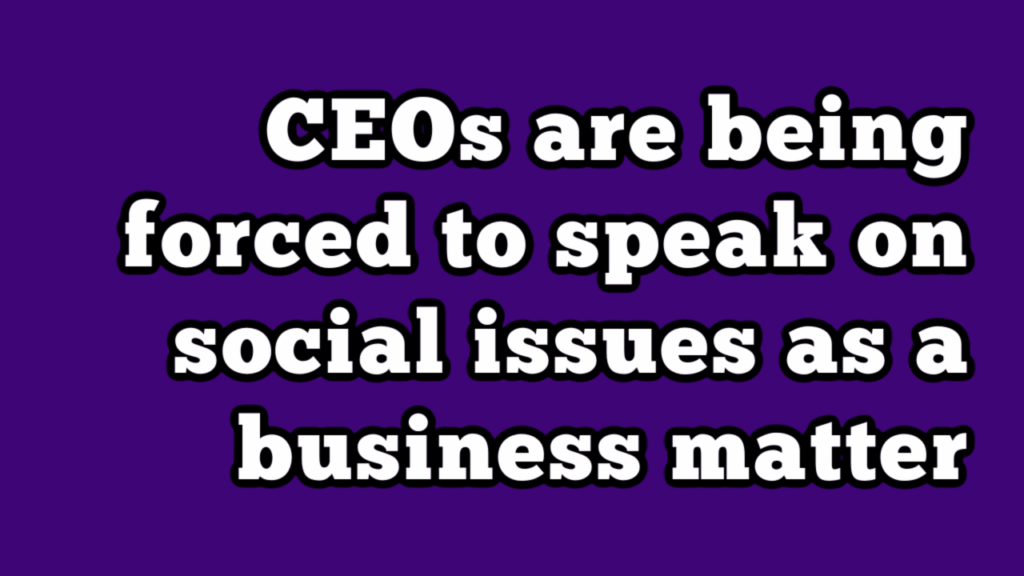CEOs are being forced to speak on social issues as a business matter

– Prevailing tendency of hedging with contributions to every elected official is unacceptable.
– Boards should develop policies on how corporate money and messaging decisions are made on political issues.
– Executives no longer have the luxury of pretending to be politically agnostic on issues like diversity, immigration, and voting rights.
Here are a few great excerpts from Nell Minow’s piece entitled “The Choice for CEOs on Political Issues is Not “Yes or No”, It’s “Helps the Brand or Hurts the Brand.” Here’s the first one:
Every public company makes asset allocations that include campaign contributions to candidates of both parties and lobbying expenditures, directly and through trade associations and other groups. Increasingly, however, the prevalent policy of hedging with contributions to every elected official is unacceptable. The Business Roundtable statement in 2019 about the vital importance of stakeholders as the best guarantee of long-term, sustainable growth and shareholder returns puts the burden on CEOs to be more specific about priorities and policies.
Here’s the second one:
It is time for every board of directors to develop new policies on how corporate money and messaging decisions are made on political issues. Like almost every other answer on corporate strategy, these decisions rest on corporate identity, or branding. As customers and consumers evaluate their choices, what will matter to them? Corporate reputation is of increasing importance, particularly to millennials and the generation that follows, a priority not just as consumers but as employees and investors.
And here is the third one:
In the 1960s, we started acknowledging that the personal is political. It is time to recognize that the commercial is political, too. Corporate executives and directors who thought the Citizens United decision deeming the company a “person” for the purposes of political speech was an opportunity are learning that the unfettered right to political speech, including spending corporate money on campaigns and lobbying, can be treacherous, and that the company’s relationship to political issues and elections is as essential to its brand as the quality of its products.
